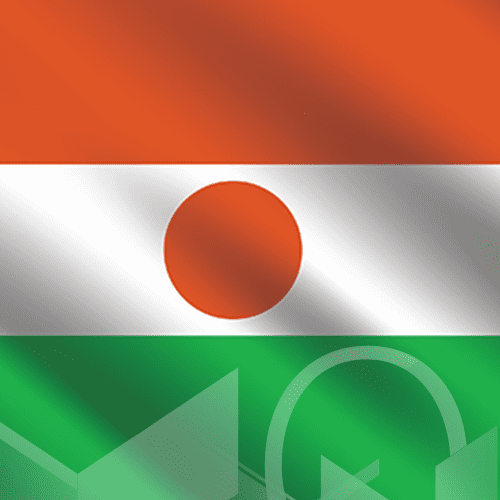
Filter
Sample Reports
Related Links
Niger
The Republic of the Niger is a landlocked country in West Africa with a land mass of 1,2 million km² and is bordered by Libya to the northeast, Chad to the east, Nigeria to the south, Benin and Burkina Faso to the southwest, Mali to the west, and Algeria to the northwest.
It has a population of 28.1m people and a GDP of US$21.1bn which is projected to grow by 7.4% in 2025, with oil production reaching 30 million barrels
Its currency is the West African Franc.
Extreme poverty reduction is expected to continue, reaching 35.8% in 2027, equivalent to 1.6 million people lifted out of extreme poverty. However, 2.2 million people (8.1% of the population) may face severe food insecurity between June and August 2025, particularly in Maradi and Dosso.
At the regional level, Niger, Burkina Faso, and Mali withdrew from the Economic Community of West African States (ECOWAS) in January 2024 and formed the Alliance of Sahel States (AES), formalizing their withdrawal in January 2025. Since then, the three countries have strengthened their cooperation, launching a joint biometric passport and deploying a joint force of 5,000 troops.
In July 2023, Niger’s President Mohammed Bazoum was ousted in a military coup led by general Abdourahamane Tiani.
Coal, gold, silver, and uranium are produced by companies, while artisanal and small-scale miners extract coal, gold, phosphate rock, semi-precious stones, and tin.
The mining and quarrying industry grew by 2.0% year-on-year, and contributed 5.1% to GDP in 2020, according to the African Statistical Yearbook. In September 2022, Canadian company GoviEx Uranium published the results of a feasibility study for the Madaouela uranium project in Niger. The US$343m mine will produce an average of 2.7 million pounds of uranium oxide per annum over its 19-year life. Orano Mining, wholly owned subsidiary of French company Orano, operates the Societe des Mines de l’Air (Somair) uranium mine in Niger, in which it has a 63.4% stake and state-owned Societe de Patrimoine des Mines du Niger (Sopamin) 36.6%.
Societe Miniere de Dasa, in which the government has a 20% stake, is a subsidiary of Canadian company Global Atomic Corporation. It is developing the Dasa uranium mine in Niger, with first production expected in Q1 2025. The US$208m mine will produce an average of 1,451.5t of uranium per year for 12 years.
Niger launched the Niger-Benin export pipeline project in September 2019 and signed a transportation convention with China National Petroleum Corporation for building and operating the pipeline. Due to new discoveries of oil reserves, the government approved the National Petroleum Policy in 2019, the objective of which is that the oil sector will be the engine of Niger's economy by 2025.
Sources: Who Owns Whom sector reports, CIA Factbook, African Development Bank, World Bank, Trading Economics, African Statistical Yearbook and IMF. ?>
Company Profile
There is no data available at the moment
Sector Research
There is no data available at the moment


